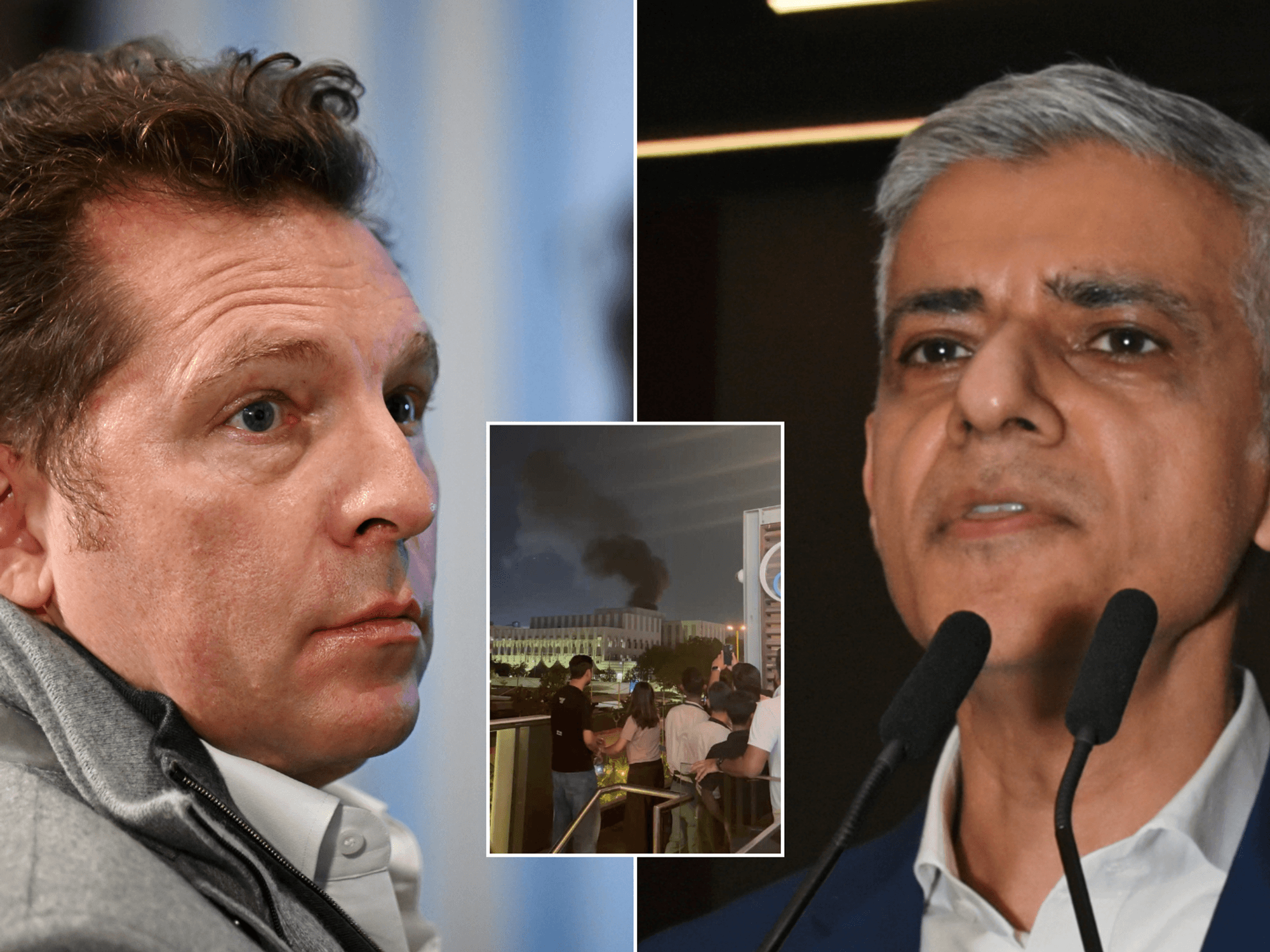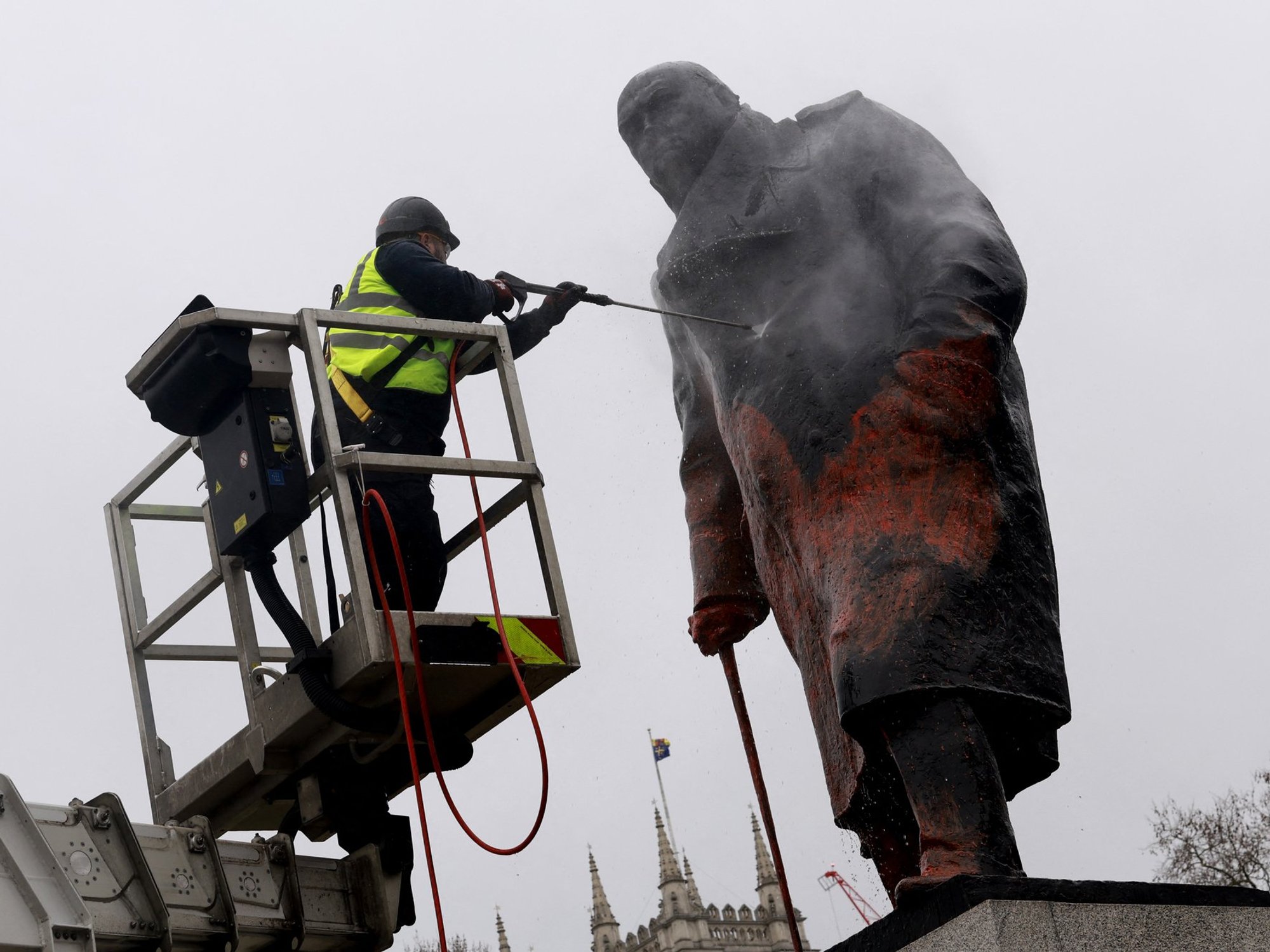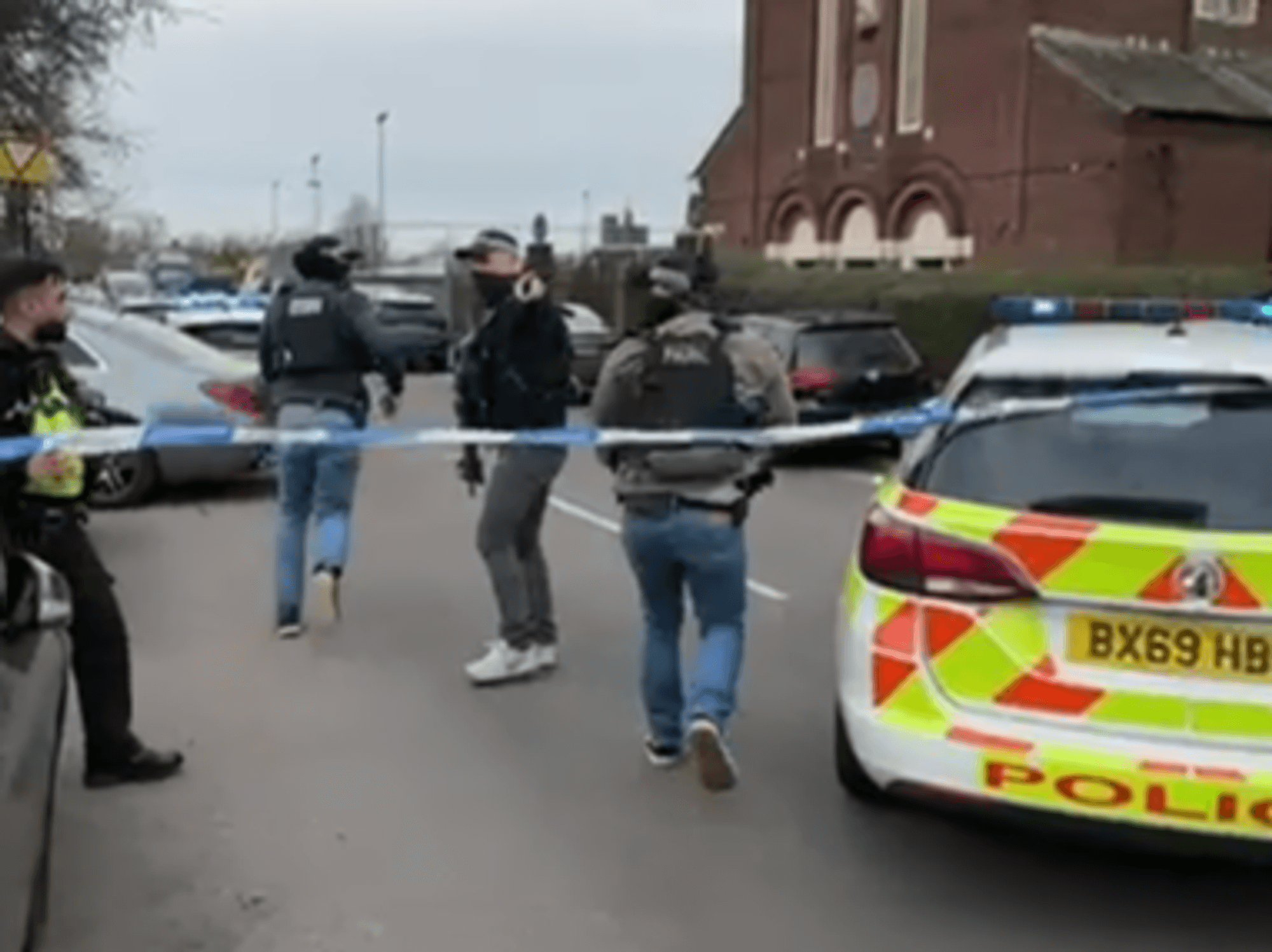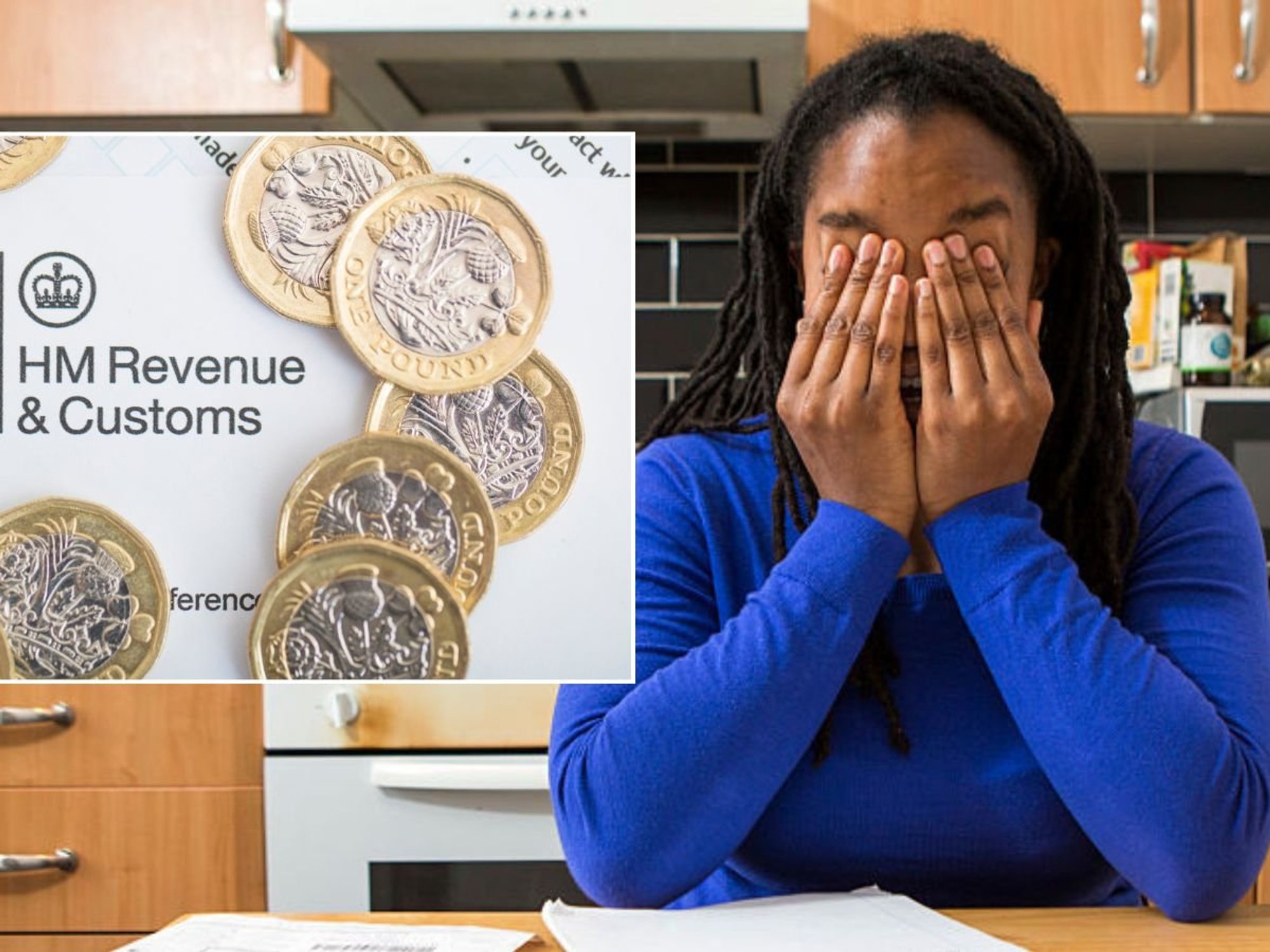Don't be fooled by the Brexit haters. The UK's exit did not cause the small boats crisis

Mark White reports live from Dover as over 2,000 migrants arrive since Sunday, and Labour’s pledge to 'smash the gangs' falls flat, one year on |
GB
Long before the boats, it was a crisis concentrated around the French Channel ports
Don't Miss
Most Read
In recent months, a narrative has started to take hold that the small boats crisis was born of the UK's decision to leave the EU.
A claim that was given more fuel by the French President Emanuel Macron last week.
During his State visit to the UK, he claimed that the lack of any agreement with Europe on migration after Brexit was responsible for the increase in small boats.
Don't be fooled by the Brexit haters - the UK's exit from the EU is not to blame for the surge in small boat migrants.
As a Home Affairs journalist for the better part of two decades, I've had a ringside seat to the Channel migrant crisis in all its various manifestations.
Long before the boats, it was a crisis concentrated around French Channel ports, where illegal migrants were intent on stowing away in the back of lorries.
At its height, that crisis saw more than 80,000 migrants pulled from the rear lorries in the space of a single year.
It was an incendiary issue that saw then Home Secretary Theresa May constantly pushing the French to do more to tighten security around ports like Calais and Dunkirk.
In the end, it took around £200million from UK taxpayers to help the French combat the crisis - sound familiar?
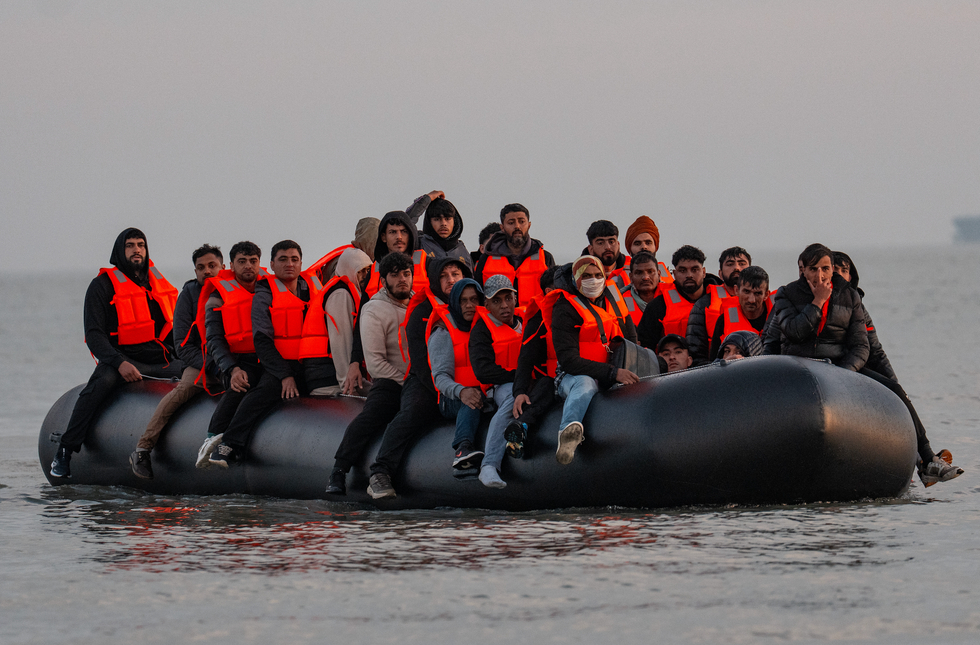 Don't be fooled by the Brexit haters. The UK's exit did not cause the small boats crisis |
Don't be fooled by the Brexit haters. The UK's exit did not cause the small boats crisis | Getty Images
Many miles of security fencing, extra patrols and hi-tech carbon dioxide sniffer probes were all employed to detect those hiding inside UK-bound trucks.
By 2017, the extra checks around fortress Calais, as it became known, were paying off, with the vast majority of migrants detected before the lorries they were hiding in boarded a ferry or Channel Tunnel freight train.
Faced with this increasingly impassable route to the UK, the smugglers looked to adapt their tactics.
They had an eye on the Mediterranean, and the many thousands fleeing the Syrian civil war, using small boats to traverse the Med and land on the shores of Greek islands.
And so, the small boats phenomenon in the English Channel began - born of lessons learned in the Med and against the backdrop of tougher port controls in France - nothing to do with the Brexit vote.
In the first few years, as the people smugglers developed their small boat supply lines, just over 10,000 migrants made the crossing.
But in the last five years, the numbers have ballooned. More than 170,000 migrants have now made the illegal crossing by small boat.
The other claim, that those numbers have rocketed because of an end to the previous Dublin agreement, is also nonsense.
That agreement allowed for the return of migrants arriving here illegally to their first country of entry, when they crossed into the EU.
But the Dublin agreement was not a one-way street. The UK also received migrants under the Dublin arrangement.
And often, more arrived here than left.
For instance, in 2016, the UK transferred 362 migrants back to the EU. However, that same year, Britain took in 558 migrants under the agreement.
The following year, the UK once again took in more migrants through the Dublin arrangement than left - 461 compared to 314.
The deal was also notoriously difficult to navigate. It often proved problematic for UK officials attempting to ascertain which country migrants had first entered the EU through.
These days, with people smugglers instructing migrants to throw away passports, phones and other identifying documents, proving a migrant's back-journey is even more difficult.
There are certainly arguments to be made about false promises to the British public about how effective Brexit would be in allowing better control of the UK's borders.
But for me, I'd suggest this is less about a failure of Brexit, and much more to do with the government of the day's inability or unwillingness to enact the border policy changes many in the UK were calling for.





